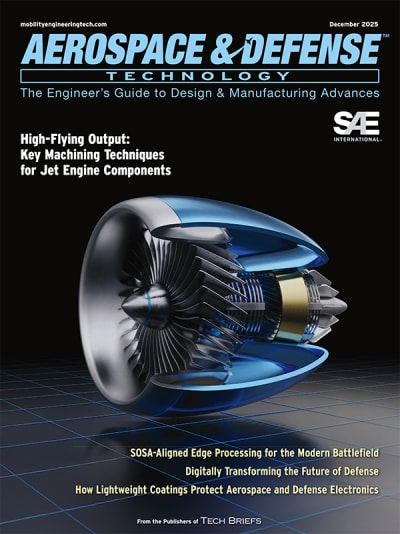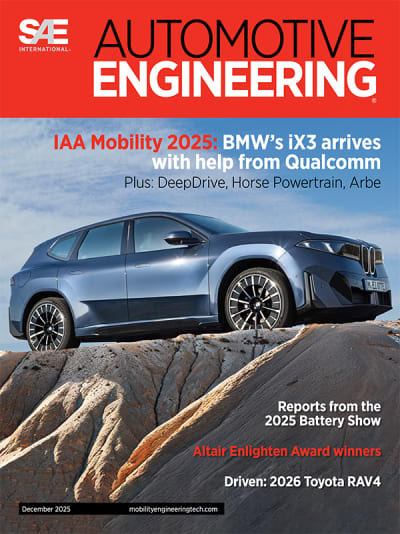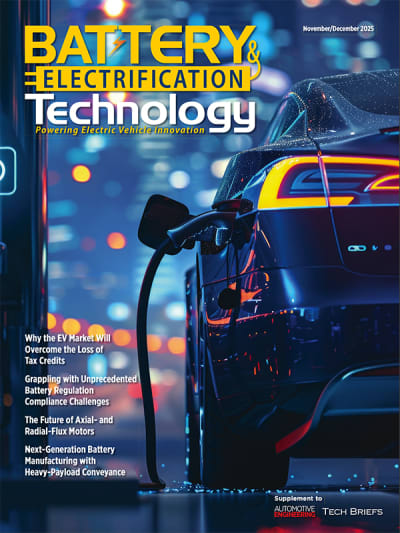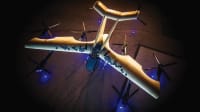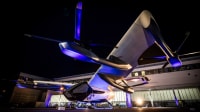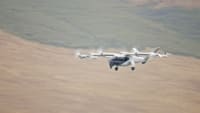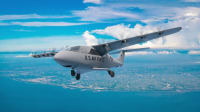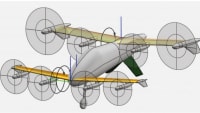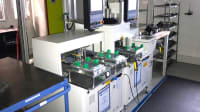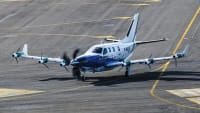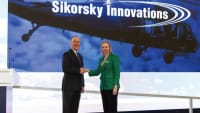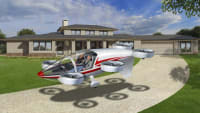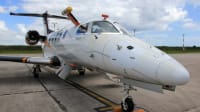Airbus Tests Single Stick Electric Flight Control System for Prototype eVTOL
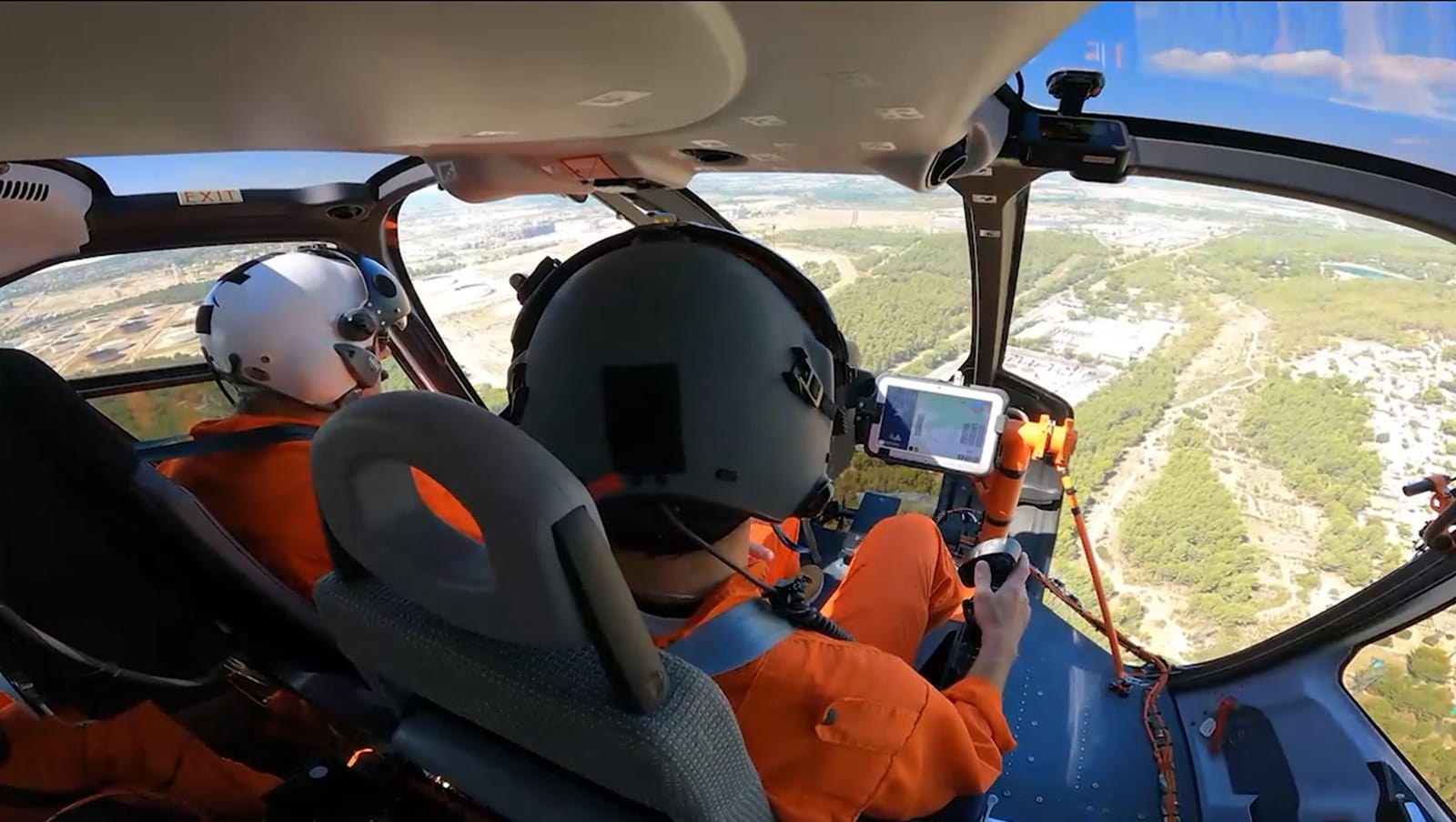
Airbus Helicopters has completed a test flight using its FlightLab demonstrator helicopter to evaluate a new single stick electric flight control system developed to serve as the human machine interface (HMI) for its CityAirbus NextGen prototype electric vertical takeoff and landing (eVTOL) aircraft.
Airbus describes the flight test as a "first" in the helicopter industry with the use of a single piloting stick that replaces the three conventional pilot controls (cyclic, pedals, collective) and is able to control all aircraft axes. Using the single stick, the pilot is able to perform all maneuvers: take-off & landing, climb, descent, acceleration, deceleration, turn, and approach.
The single stick takes up less space, offers improved visibility to the pilot and is combined with a revised HMI which uses simple displays, providing a selection of information specifically tailored to eVTOLs, according to Airbus.
“From the start, we designed this system considering every certification parameter in mind as it will be a big step forward in validating the design of our urban air mobility eVTOL, CityAirbus NextGen . The advantage of an electric flight control system is enormous, especially when it comes to reducing pilot workload and ultimately enhancing mission safety. It is also a great example of how our demonstrators are used to mature the techno-bricks necessary to prepare the future of vertical flight,” says Tomasz Krysinski, Head of Research & Innovation at Airbus Helicopters.
The single stick electric flight control system is being developed by Crouzet, a Valence-based supplier of customized mechatronic components. Benefiting from extensive experience in flight deck controls, the electromechanical and electronic components company has developed a whole new human-machine interface concept that complies with the most stringent requirements for size, weight and safety: the pilot will manage the trajectory of the vehicle rather than the attitude of the aircraft.
The actual control action on the propellers is then managed by the advanced flight control system. The new piloting interface radically simplifies flying and thus reduces pilot workload, according to Airbus. Consequently, the HMI system will rely on Crouzet's piloting device to let the pilot choose either a fully automated flight, or manual control take-over for a smooth and easy steering of the aircraft anytime during the flight.
Airbus first unveiled its fully-electric CityAirbus NextGen eVTOL prototype in September 2021. Capable of carrying up to four passengers, the prototype eVTOL has a V-shaped tail and a distributed propulsion system powered by eight electrical-powered propellers. Based on a lift and cruise concept, it features an "80-km operational range and a cruise speed of 120 km/h" according to Airbus.
The new single stick electric flight control system was tested on FlightLab, an H130 that Airbus Helicopters has been using as a testbed for eVTOL technologies since 2021. After the success of the flight test campaign Airbus Helicopters is working on finalizing the details of this new system before new tests are conducted in the framework of Vertex, a project conducted in partnership with Airbus UpNext that will advance autonomy even further by managing navigation and simplifying mission preparation.
Top Stories
INSIDERRF & Microwave Electronics
![]() FAA to Replace Aging Network of Ground-Based Radars
FAA to Replace Aging Network of Ground-Based Radars
PodcastsDefense
![]() A New Additive Manufacturing Accelerator for the U.S. Navy in Guam
A New Additive Manufacturing Accelerator for the U.S. Navy in Guam
NewsSoftware
![]() Rewriting the Engineer’s Playbook: What OEMs Must Do to Spin the AI Flywheel
Rewriting the Engineer’s Playbook: What OEMs Must Do to Spin the AI Flywheel
Road ReadyPower
![]() 2026 Toyota RAV4 Review: All Hybrid, All the Time
2026 Toyota RAV4 Review: All Hybrid, All the Time
INSIDERDefense
![]() F-22 Pilot Controls Drone With Tablet
F-22 Pilot Controls Drone With Tablet
INSIDERRF & Microwave Electronics
![]() L3Harris Starts Low Rate Production Of New F-16 Viper Shield
L3Harris Starts Low Rate Production Of New F-16 Viper Shield
Webcasts
Energy
![]() Hydrogen Engines Are Heating Up for Heavy Duty
Hydrogen Engines Are Heating Up for Heavy Duty
Energy
![]() SAE Automotive Podcast: Solid-State Batteries
SAE Automotive Podcast: Solid-State Batteries
Power
![]() SAE Automotive Engineering Podcast: Additive Manufacturing
SAE Automotive Engineering Podcast: Additive Manufacturing
Aerospace
![]() A New Approach to Manufacturing Machine Connectivity for the Air Force
A New Approach to Manufacturing Machine Connectivity for the Air Force
Software
![]() Optimizing Production Processes with the Virtual Twin
Optimizing Production Processes with the Virtual Twin

